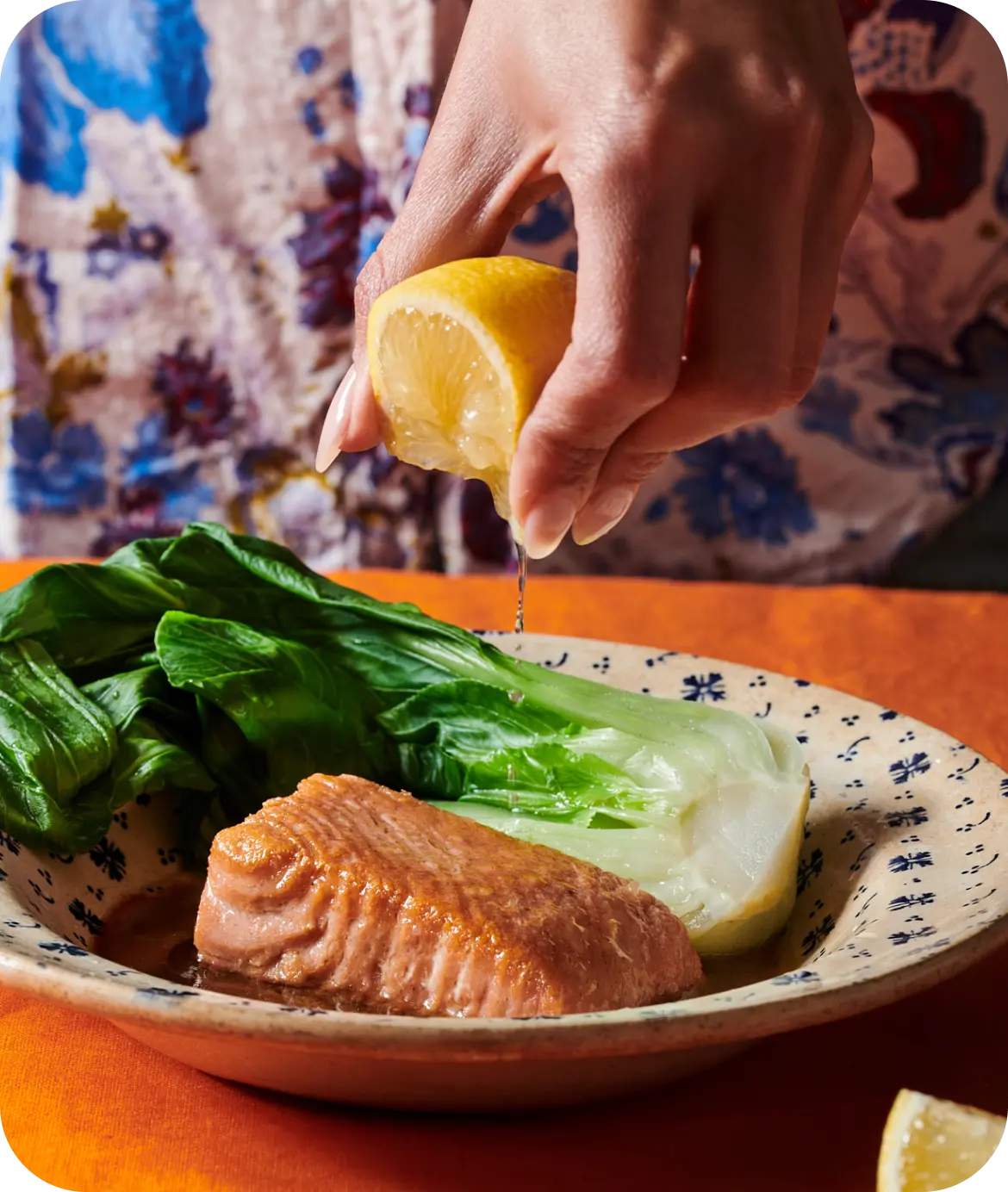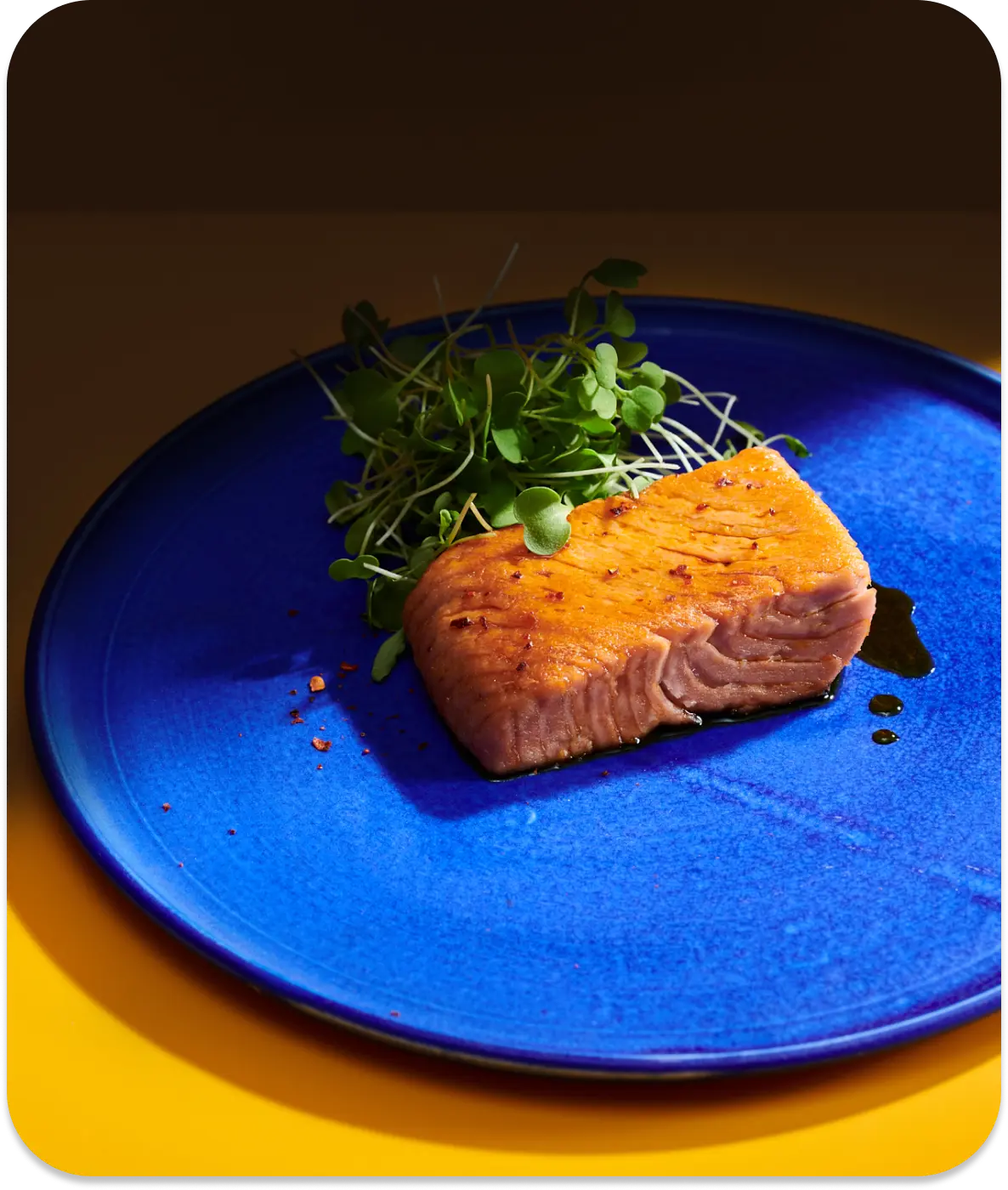
8.11.2024
As restaurants increasingly seek sustainable and innovative menu options, plant-based seafood is emerging as a compelling category. According to the Plant Based Foods Association, 41% of consumers choose plant-based menu items when dining out weekly, with 88% maintaining or increasing their consumption over the past three months, while restaurants that added plant-based options saw their overall plant-based sales increase by 112% and mixed orders rise by 35% within six months.
Ofek Ron, Co-founder and CEO of Oshi, recognized this growing demand and the opportunity to create plant-based seafood that meets the high standards of chefs and diners. Since launching in 2021, Oshi, which to date has raised a total of $14.5 million over two funding rounds, has partnered with a growing number of restaurants, focusing on delivering a product that doesn’t compromise on taste, texture, or culinary appeal. The company opened its California-based co-manufacturing production facility last month and is now working to scale its machinery to produce larger quantities of its product at a lower price to meet demand in the foodservice sector.
In this interview, Ron discusses the journey in developing a plant-based salmon fillet and the vision for transforming restaurant menus with delicious and sustainable seafood alternatives. He also shares his insights into the evolving landscape of plant-based dining and Oshi’s commitment to providing restaurants with innovative solutions that resonate with today’s discerning consumers.

What’s the story behind Oshi?
I’ve always been passionate about both the environment and food. Growing up near the coast, I witnessed the adverse effects of overfishing and pollution on marine life. This sparked my interest in finding sustainable solutions for our food system. The idea for Oshi came to me after 10 years being vegan and still missing the taste of fish.
 I realized that there were very few companies working on high-quality, plant-based seafood, and none that offered the taste, texture, and nutritional profile consumers expect from real fish. Also, the products were mainly focused on ground-fish applications but no whole-cut fish fillets, which are the most popular. My co-founders and I set out to fill this gap, aiming to create a product that not only meets but exceeds consumer expectations. We wanted to develop something that was not just a substitute but a superior choice in terms of sustainability and health.
I realized that there were very few companies working on high-quality, plant-based seafood, and none that offered the taste, texture, and nutritional profile consumers expect from real fish. Also, the products were mainly focused on ground-fish applications but no whole-cut fish fillets, which are the most popular. My co-founders and I set out to fill this gap, aiming to create a product that not only meets but exceeds consumer expectations. We wanted to develop something that was not just a substitute but a superior choice in terms of sustainability and health.
Can you talk a little bit about the technology and process behind your plant-based salmon fillet?
Oshi’s plant-based salmon fillet is crafted using a proprietary blend of plant proteins and natural ingredients to replicate the taste and texture of real salmon. Our process involves advanced modular layering techniques combined with culinary artistry. We use a unique mix of plant-based proteins and algae oils layered in a way that is essential for mimicking the rich, flaky texture of salmon.
Why focus on salmon, and why is providing minimally processed alternatives important?
Salmon is one of the most consumed fish globally and is known for its health benefits, including high levels of omega-3 fatty acids. However, overfishing and aquaculture have significant environmental impacts. By focusing on salmon, we aim to offer a sustainable alternative that doesn’t compromise on taste or nutrition. It’s important to us that our products are as close to nature as possible while still providing the convenience and flavor that people love.
What challenges have you faced in the alternative seafood sector, and how has Oshi overcome them?
The alternative seafood sector is relatively new and comes with its own set of challenges, primarily around replicating the complex flavors and textures of fish. One major hurdle has been convincing  consumers that plant-based seafood can be just as delicious and satisfying as traditional seafood. We’ve tackled this by investing heavily in research and development and conducting extensive taste tests to ensure our product meets high standards.
consumers that plant-based seafood can be just as delicious and satisfying as traditional seafood. We’ve tackled this by investing heavily in research and development and conducting extensive taste tests to ensure our product meets high standards.
Another challenge is educating consumers about the environmental impact of overfishing and the benefits of plant-based alternatives. We’ve addressed this through transparent communication and partnerships with environmental organizations to raise awareness.
Where is Oshi’s plant-based salmon currently available, and what’s next for the company?
Our plant-based salmon fillet is currently available in select restaurants across the United States, including major cities like New York, Portland, and Chicago. We’ve received overwhelmingly positive feedback from chefs and consumers alike, who appreciate the product’s taste, texture, and sustainability.
Looking ahead, we plan to expand our product line to include new types of plant-based seafood, such as “Fairytale Fish.” We’re also working on entering retail and entering new markets internationally. Our goal is to make delicious, sustainable seafood alternatives accessible to everyone, everywhere.
What excites you most about the future of plant-based foods, particularly in the seafood category?
I’m incredibly excited about the potential to make a significant positive impact on our planet and our health. The plant-based food movement is gaining momentum, and seafood is a category that’s ripe for innovation. As more people become aware of the environmental and health benefits of plant-based diets, I believe we’ll see a major shift in consumer behavior.
For Oshi, the exciting part is being at the forefront of this change and continuing to innovate. We’re dedicated to creating products that not only taste great but also contribute to a more sustainable and equitable food system. The future of food is plant-based, and we’re thrilled to be a part of it.

